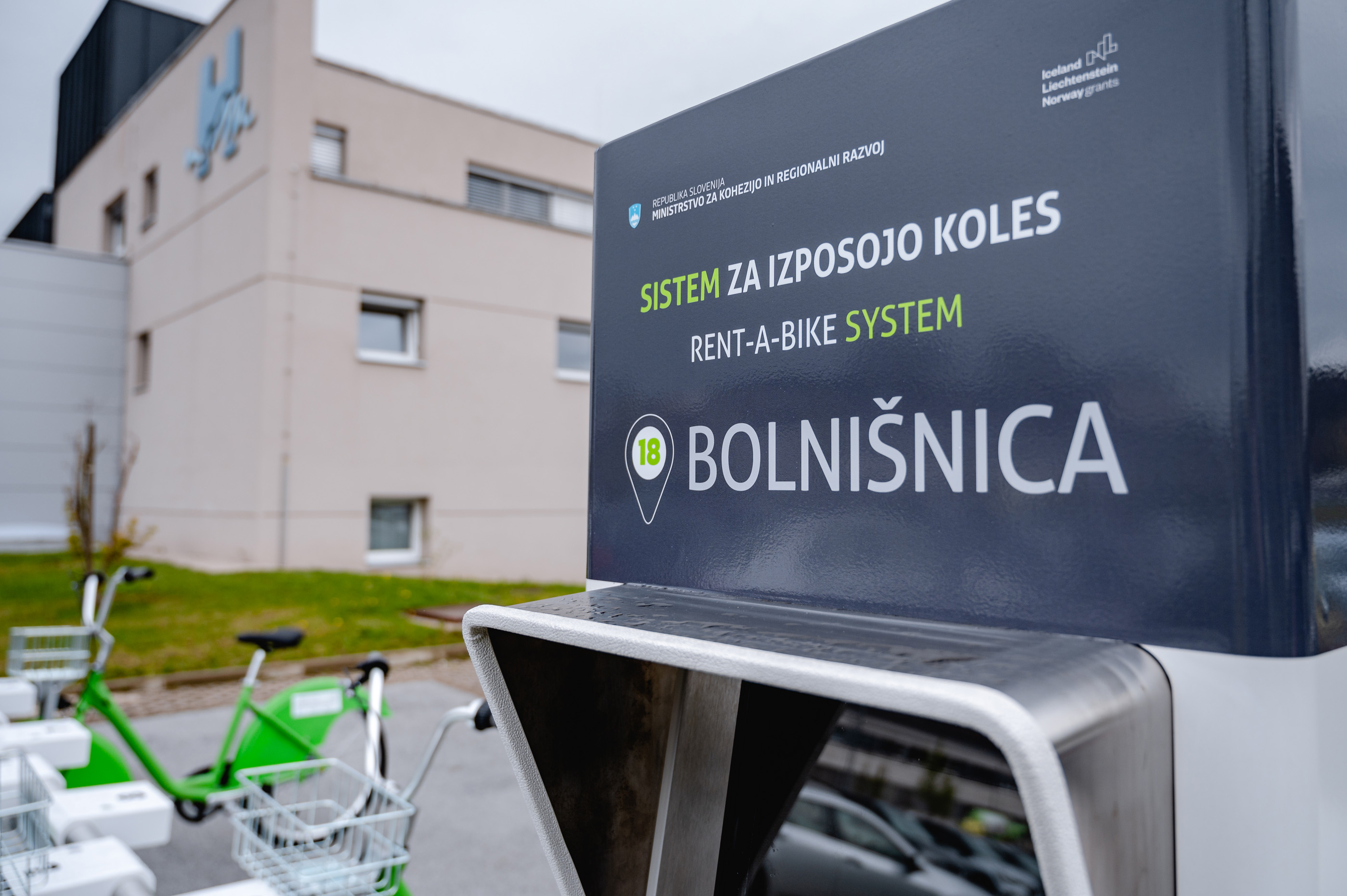
20 June 2024 – The Climate Change Mitigation and Adaptation Programme is being implemented in the 2014-2021 programming period and represents an important step towards sustainable development and reducing the negative impacts of climate change.
The programme aims to accelerate planning, strengthen institutional capacity, and implement demonstration actions that contribute to climate change mitigation and adaptation.
Enhanced Sustainable Mobility Management
Under the Climate Change Mitigation and Adaptation Programme, five projects supported by the EEA Financial Mechanism have been implemented, contributing to sustainable mobility management.
ReMOBIL Project
The ReMOBIL project, led by the Soča Valley Development Centre, establishes a model for sustainable mobility governance at regional level through recommendations for harmonisation of legislation. The project has established a pilot network of six regional mobility centres. The partners involved in the project are the Regional Development Agency of the Ljubljana Urban Region, BSC, Business Support Centre, Ltd, Regional Development Centre Koper, Regional Development Agency for Podravje – Maribor, RDA Koroška, the Regional Development Agency for Koroška, Ltd, AMZS, Urban Institute of Ljubljana and the Norwegian partner Viken County Council.
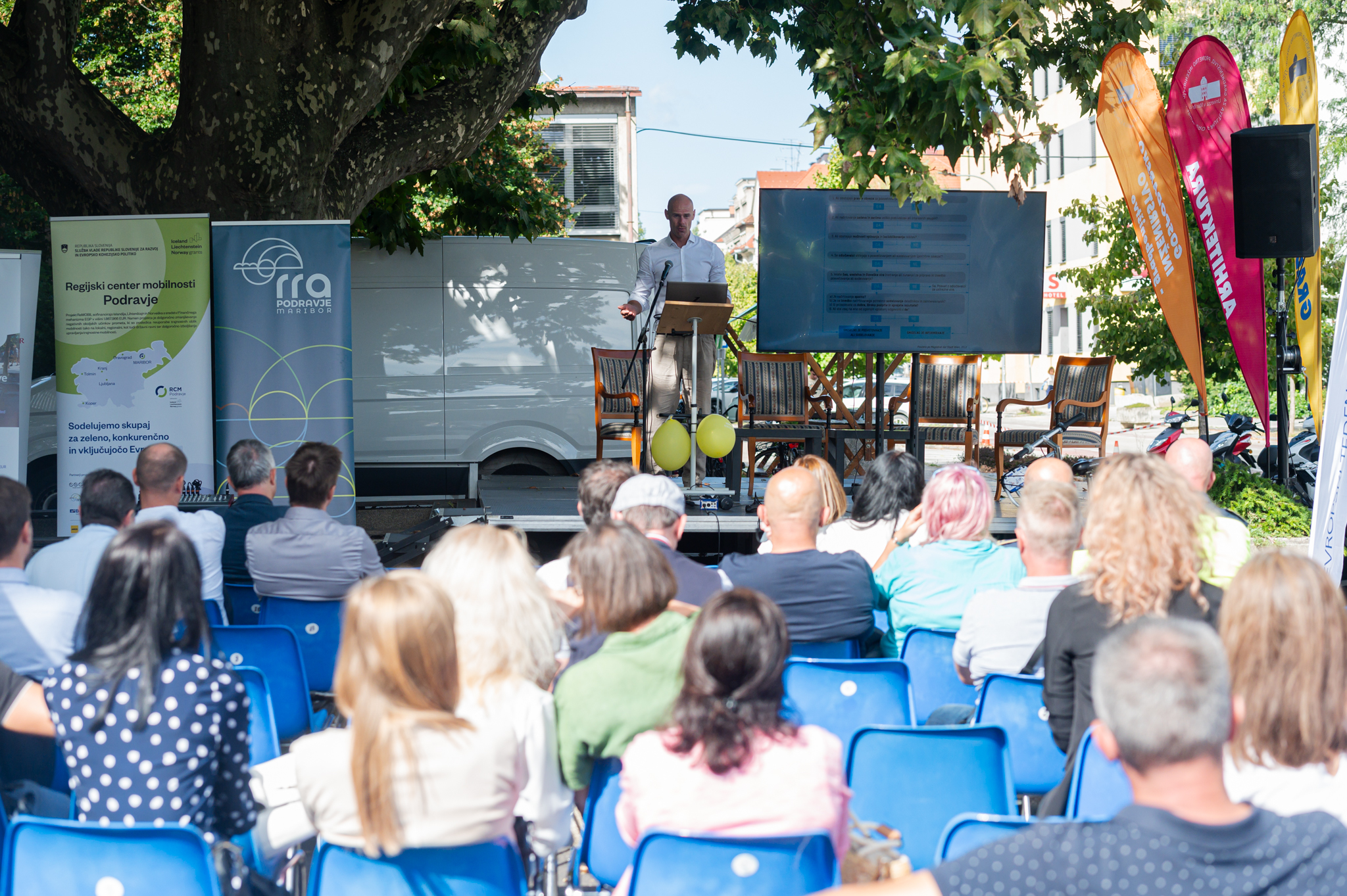
SmartMOVE Project
The SmartMOVE project is promoted by the Regional Development Agency of the Ljubljana Urban Region. The project has developed a procedure for obtaining a special certificate for sustainable mobility and has established a methodology and developed sustainable mobility plans for organisations with many employees in congested locations. They also designed a pilot solution for commuting in the Ljubljana Urban Region with dynamic group transport. The project also involved the Jožef Stefan Institute, the Urban Institute of Ljubljana, the Association of Employers of Slovenia, GoOpti Ltd, the Institute for Spatial Policies, the Centre of Energy Efficient Solutions and the Nordland Research Institute from Norway.
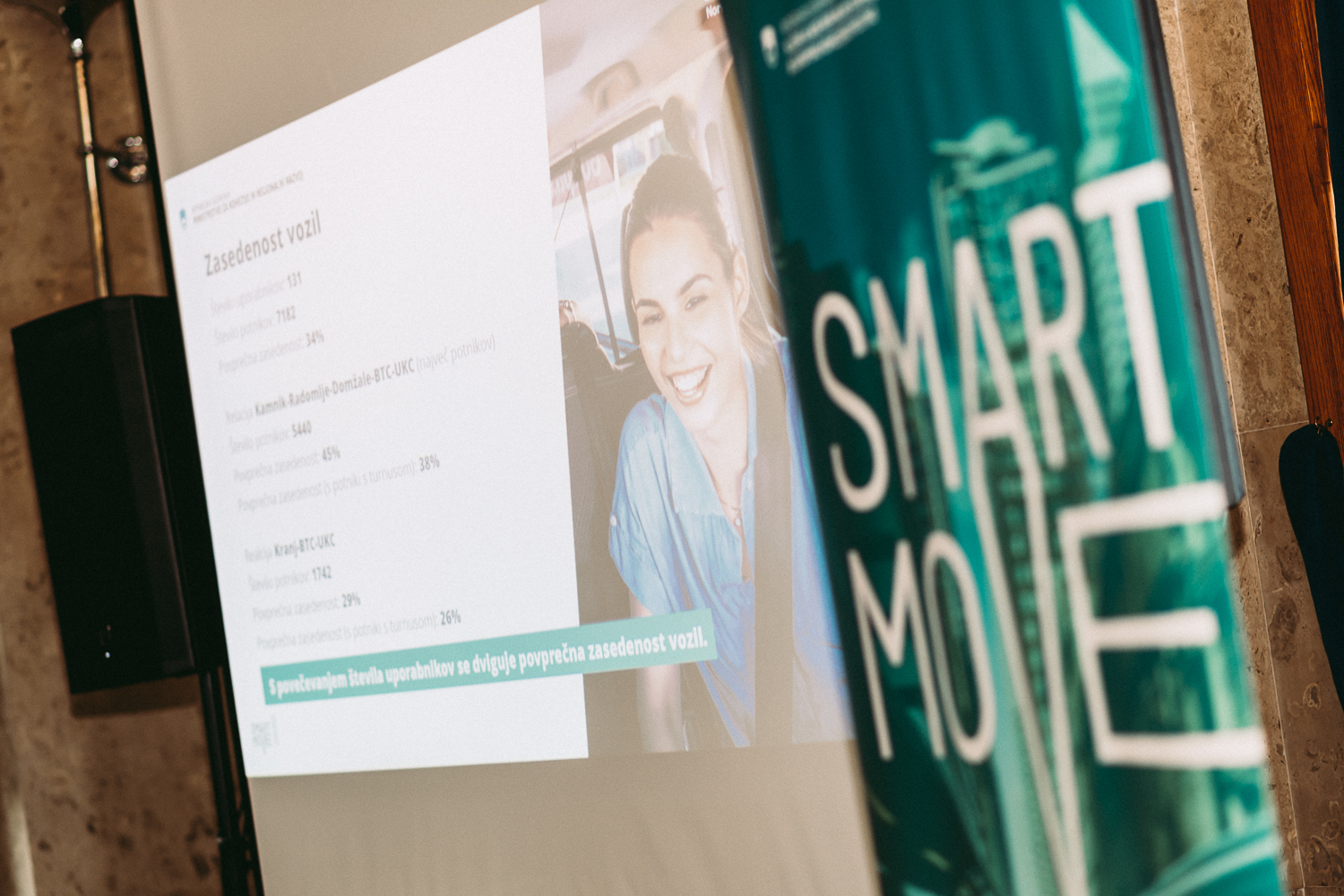
SALOMON Project
The SALOMON project, led by the Development Centre Novo mesto Ltd, focused on the development of a plan for mobility management at the General Hospital Novo mesto site. The project includes the establishment of a GoNM system for bicycle rental at the hospital site, three charging stations for electric vehicles for employees and an IT tool for monitoring travel habits. The participating partners in the project are General Hospital Novo mesto and the Norwegian partner Nord University.
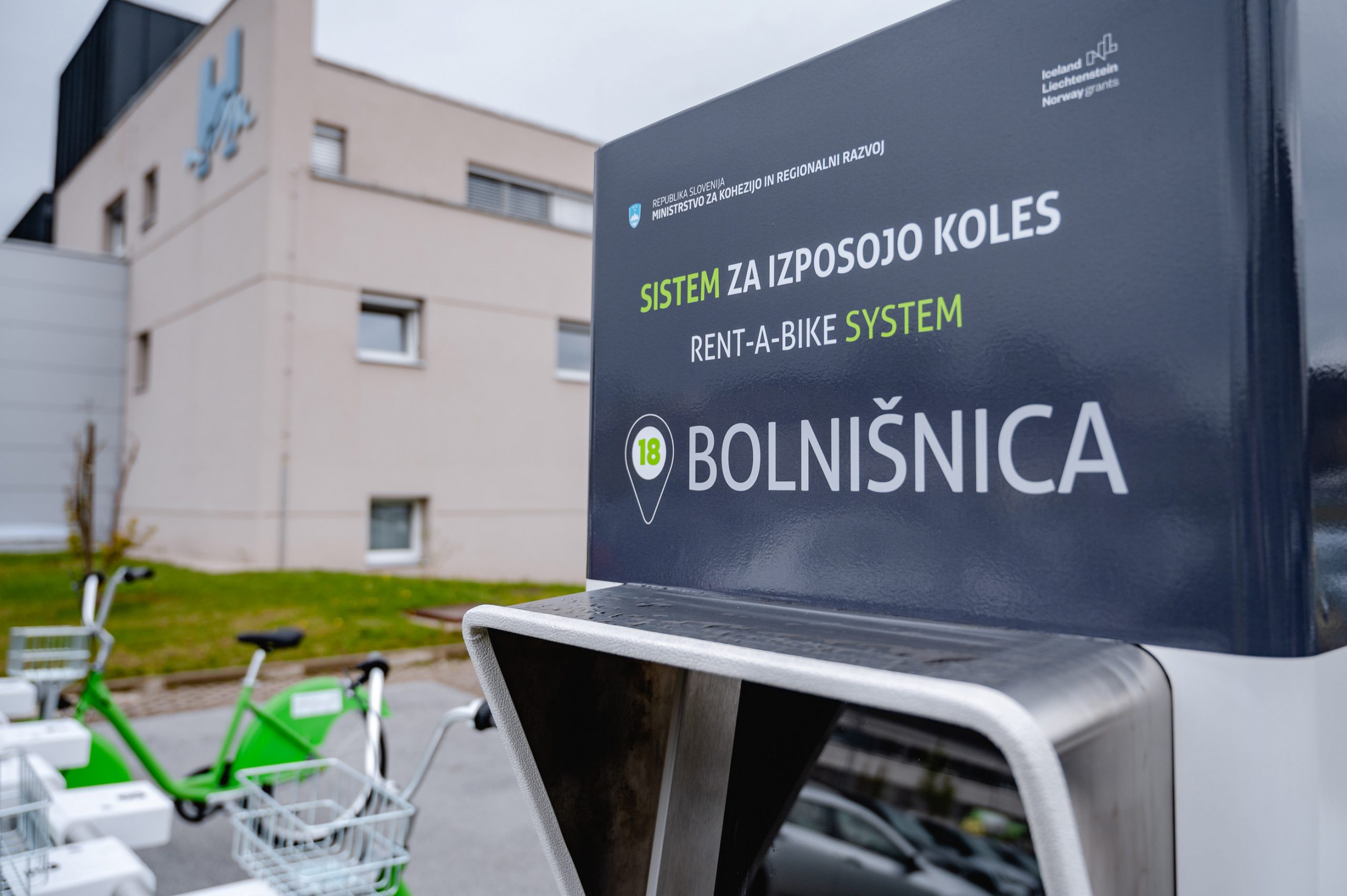
Trata 2.1 Project
The Trata 2.1 project, led by the Municipality of Škofja Loka, increased the share of employees in the Škofja Loka industrial zone Trata using sustainable forms of mobility for commuting and business trips by at least 4%. A missing part of the two-way cycle path connecting the industrial zone Trata with Godešič was built. The companies involved in the project have acquired individual mobility plans, bikesheds, electric bicycles and charging stations for electric bicycles. In addition, various measures and promotions were used to present the benefits of sustainable mobility to employees and encourage them to change the way they get to work. The participating partners are Sora Development Agency Ltd, Institute for Spatial Policies, CIPRA Slovenia, Society for the Protection of the Alps, Knauf Insulation, Ltd, SIBO Group, Packaging Development and Production, Ltd, LTH Castings, Ltd, and CIPRA International.
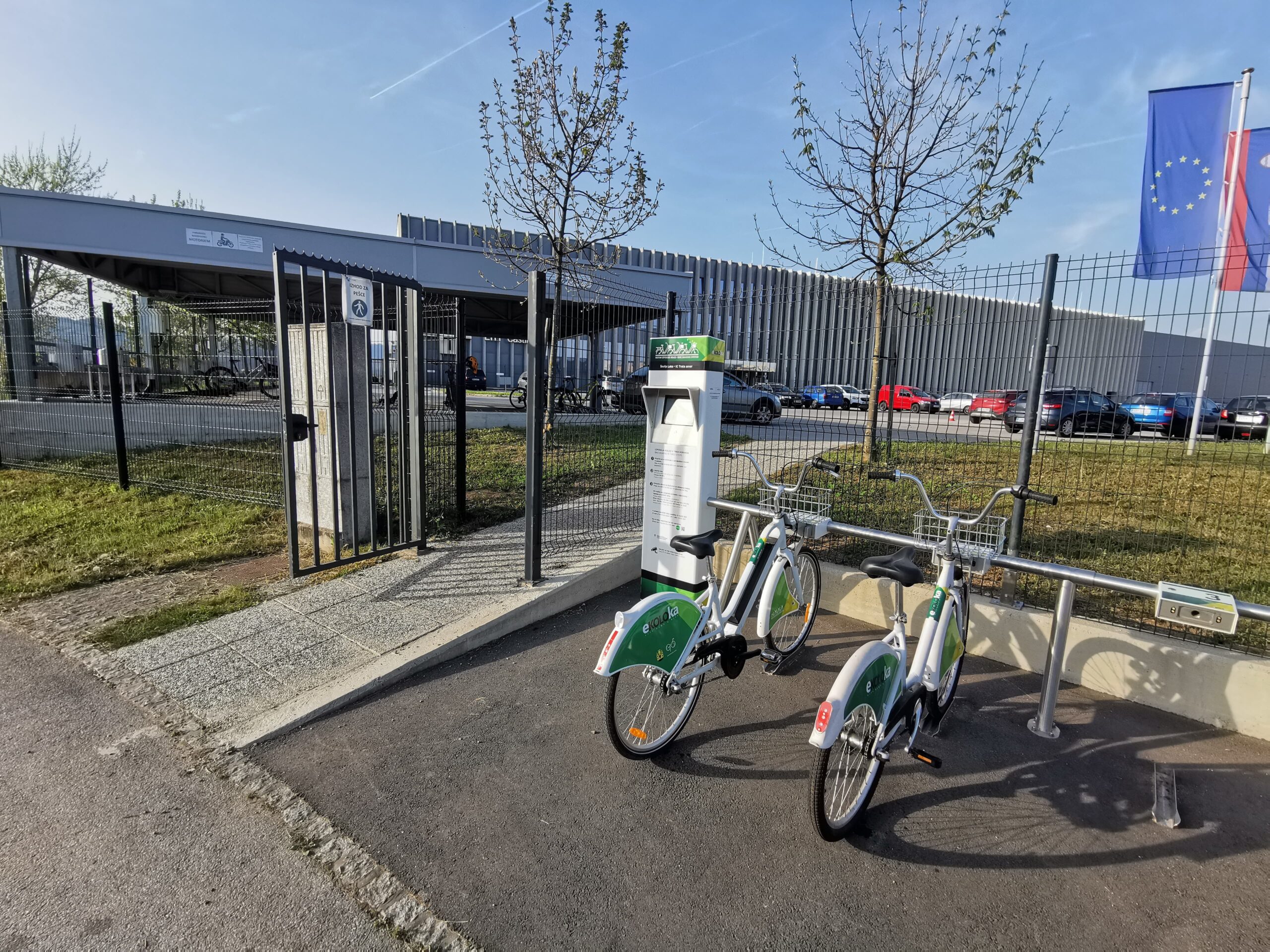
Predjama Sustainable Project
The project Predjama Sustainable is led by the Municipality of Postojna. The project focused on improving mobility in the Predjama area by increasing the involvement of local providers in sustainable offer. The project involved Postojnska jama Joint Stock Company, the Institute for Spatial Policies and the Norwegian partner Strand Municipality.
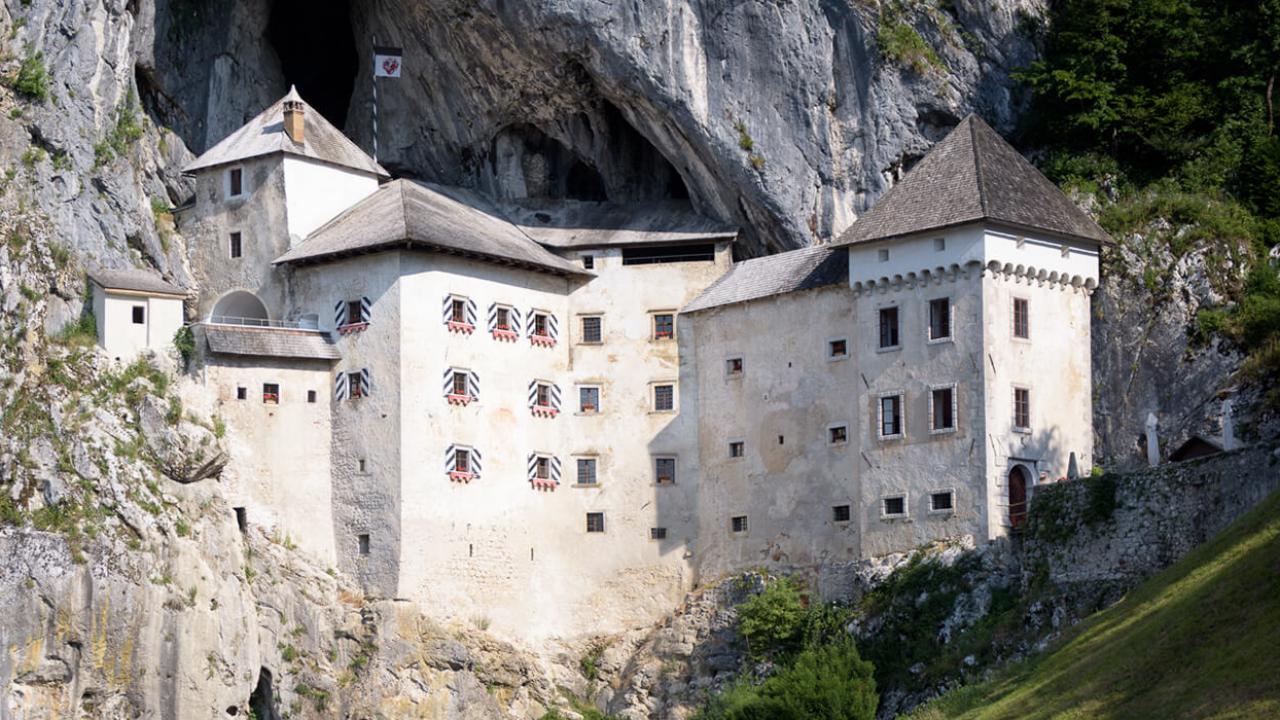
Contribution to Improving the Sustainable Mobility Management
Projects focusing on improving the sustainable mobility management have established cooperation between different regional agencies, municipalities, institutes, and international partners, leading to the establishment of pilot networks, certification procedures and mobility plans that reduce negative environmental impacts and improve quality of life. The projects show that concrete and measurable improvements are possible through cooperation and innovative approaches, leading to a more sustainable future that benefits people and the environment.
SOURCES: ReMOBIL, SmartMOVE, SALOMON, Trata 2.1 in Predjama Sustainable